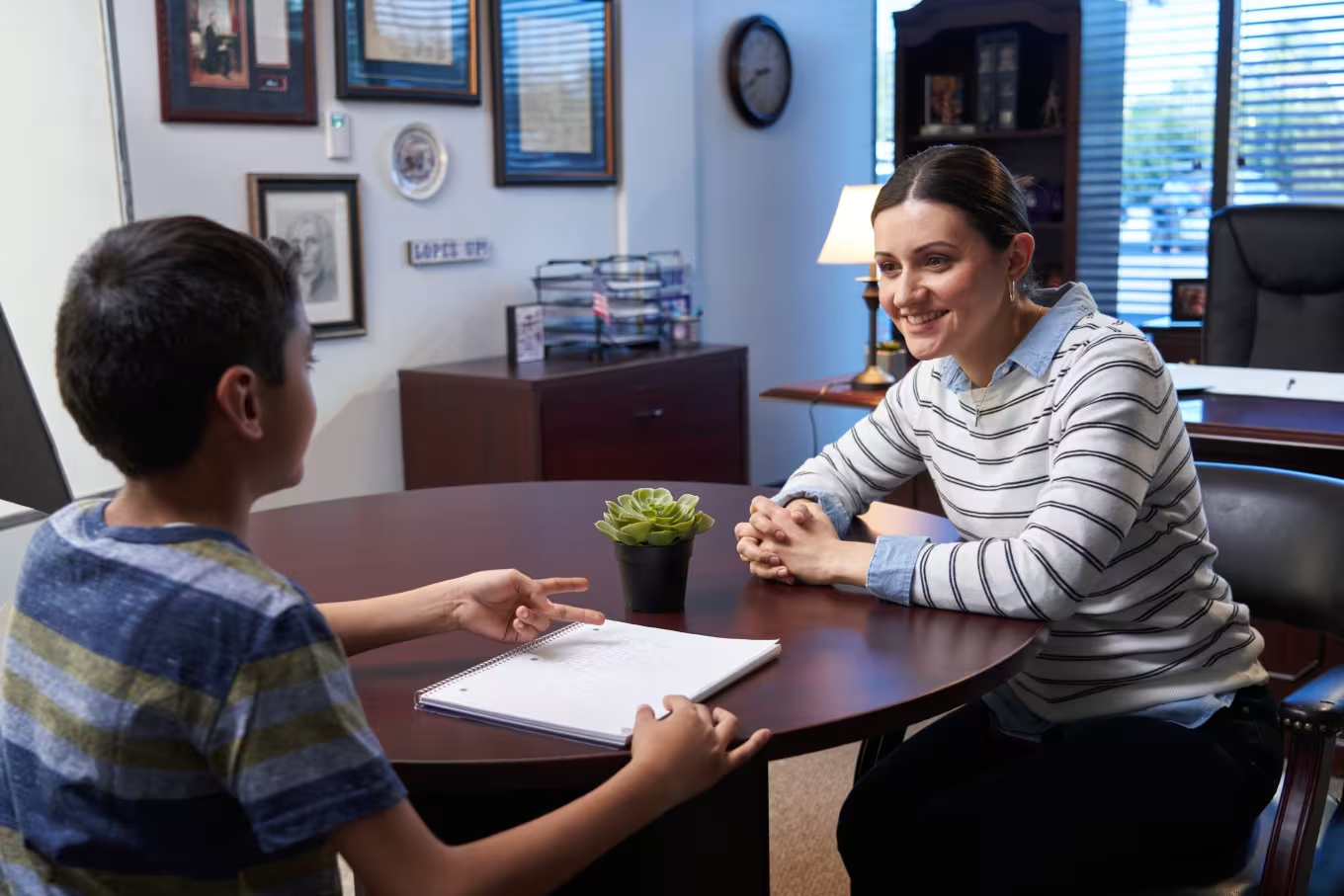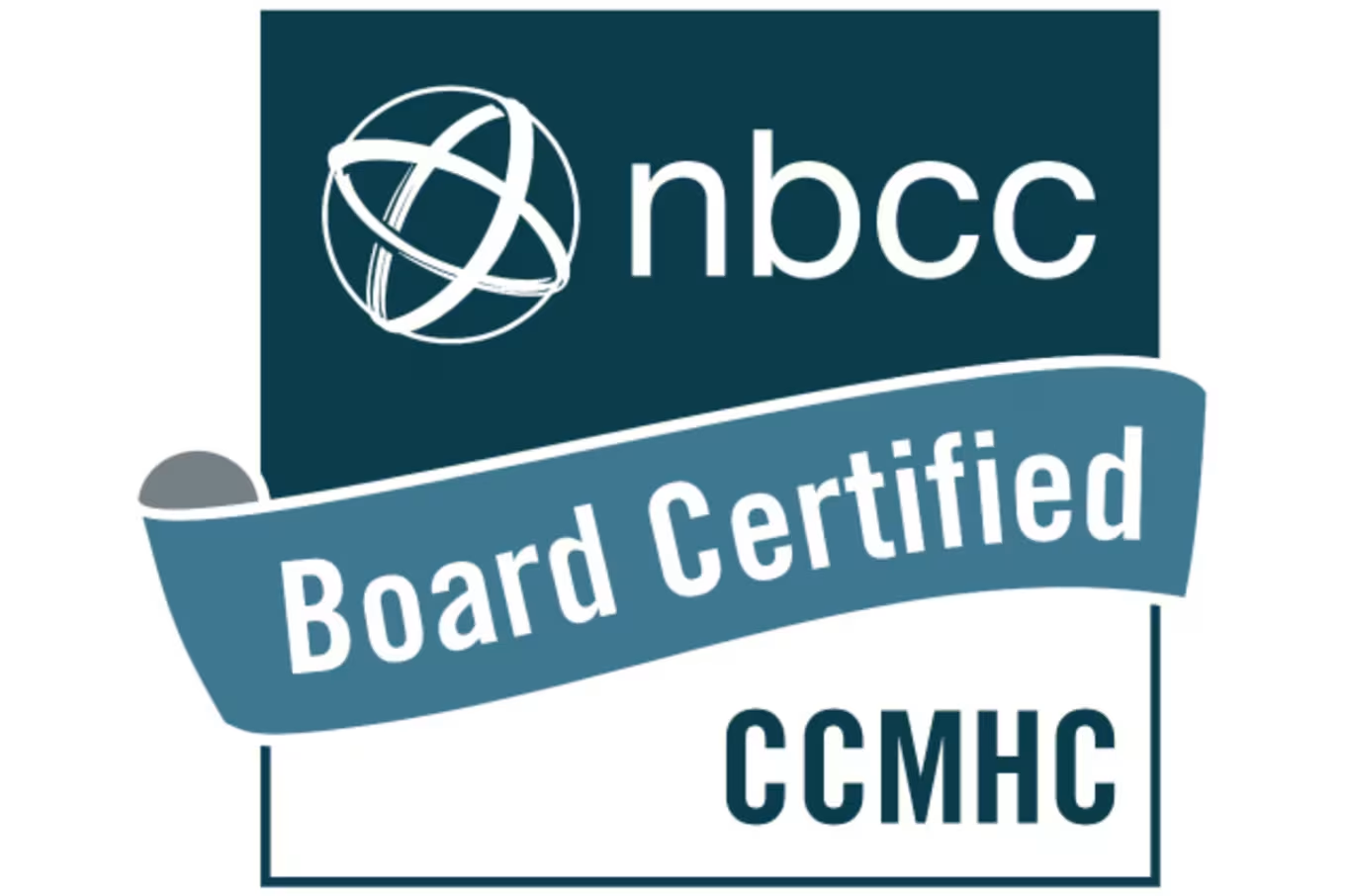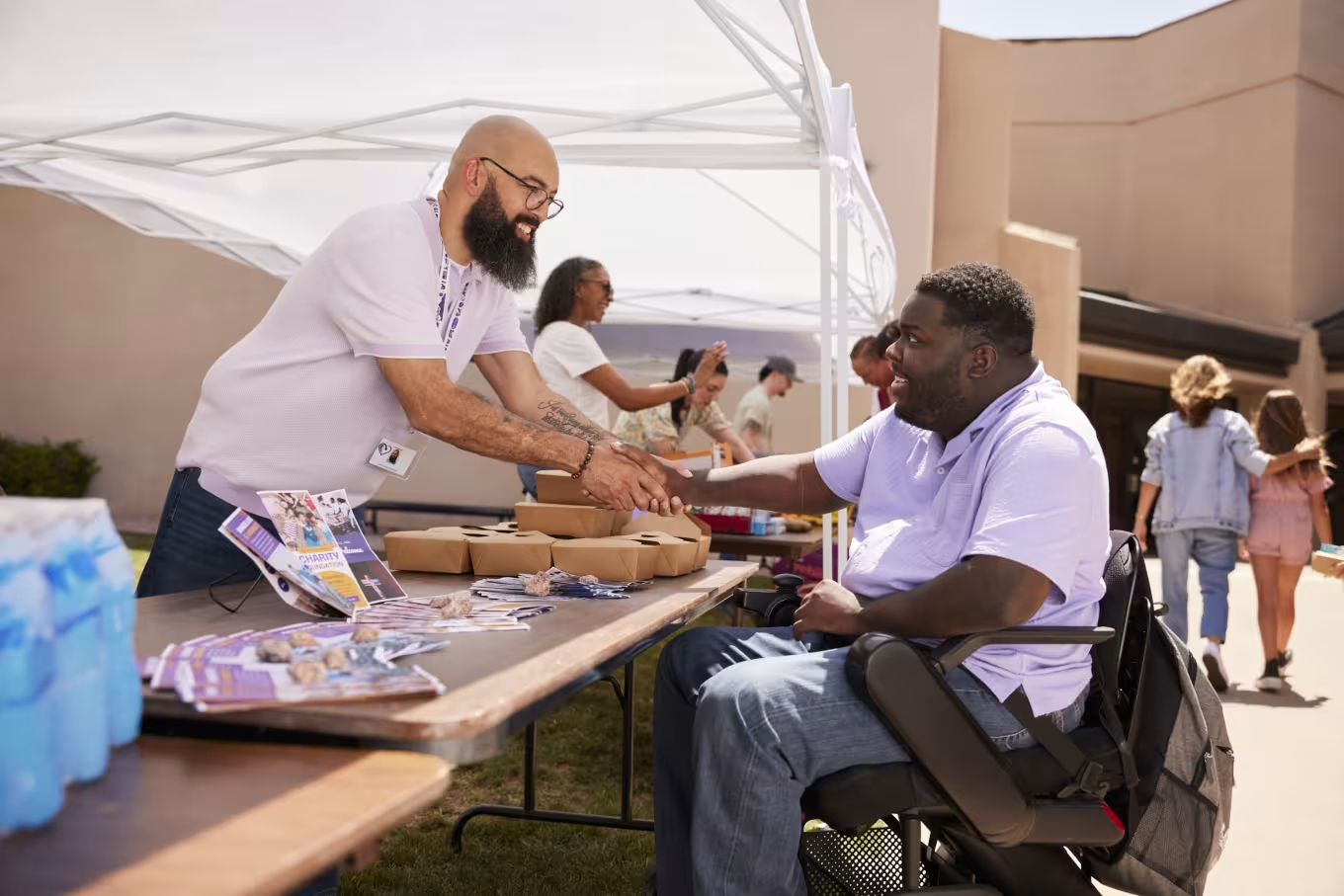Online Master’s in Clinical Mental Health Counseling

Online Master’s in Clinical Mental Health Counseling
journey today.

We're here to help.
The coursework in this program is non-transferable from other institutions.
Credits: Fill out the Lopes Eval to find out what will transfer
Admission Requirements (Master's)
OR 2.5+ Unweighted GPA and
Admission requirements may differ based on degree level, program and modality, or transfer status. Some programs of study may require a higher GPA and/or other qualifying criteria for admission. Please review full admission and program requirements in the University Policy Handbook.
* Degree must be from an accredited college or program that has been approved by GCU.
** Combined verbal/quantitative, after August 2011 (1,000 combined verbal and quantitative, prior to August 2011).
This MS in Clinical Mental Health Counseling degree program is offered both online and through in-person evening classes by the College of Humanities and Social Sciences. The graduate program provides opportunities to study and apply evidence-based counseling theories and practical applications.

Effective clinical mental health counselors are strong communicators, active listeners and empathetic, compassionate people who can make genuine connections with their clients. In this master’s in clinical mental health counseling degree program, you will explore the client-counselor relationship and learn to establish appropriate boundaries.
You will have the opportunity to learn how to evaluate and apply evidence-based research to your practice. This program also offers a career counseling course, which provides a broad understanding of career development and decisions as a clinical mental health counselor.
As a student in the clinical mental health counseling program, you will need to complete the practicum and two internship experiences. These provide supervised clinical experience in the counseling field.
Additionally, the courses in this master’s program will cover these key topic areas:
One of the first steps toward licensure in your state is to obtain your master’s degree in clinical mental health counseling. Once a master’s degree is obtained, you will need to complete necessary examinations, supervision and counseling hours specific to your state. Once licensure is obtained, licensed clinical mental health counselors can work with individuals, couples, families and groups. Counselors focus on discovering underlying causes for mental health distress and aid in treating symptoms of mental and emotional concerns.1 A master’s degree is a required step before licensure can be achieved your respective state.2


GCU’s master’s degree in clinical mental health counseling graduate program is designed to meet the academic requirements of the National Board for Certified Counselors for the National Certified Counselor (NCC) credential, the Certified Clinical Mental Health Counselor (CCMHC) credential and the Arizona Board of Behavioral Health Examiners.
GCU’s MS in Clinical Mental Health Counseling degree can help prepare graduates to work toward professional licensure. The program meets the academic requirements for licensure in Arizona as a Licensed Associate Counselor (LAC) and Licensed Professional Counselor (LPC). Students who wish to practice in another state should check the state’s specific requirements.
Visit the "State Disclosures" section on the page of the program you’re interested in at gcu.edu for details on state restrictions.
If you would like to learn more about earning a clinical mental health counseling degree, please read our answers to these frequently asked questions here.
If you are passionate about assisting others through the trials and hardships of life, a counseling degree is worth considering. All states require a master’s degree for counselor licensure purposes,2 so this clinical mental health counseling degree can help bring you a step closer toward achieving your goal of licensure. Once licensed, you will have the opportunity to work in various settings with individuals, groups and families of diverse ages and backgrounds.
GCU’s MS in Clinical Mental Health Counseling degree is available online and allows you to work from your home or office. With a graduate degree in counseling from GCU, you can work toward achieving licensure in your desired state. GCU offers an in-person option to complete coursework as well, for individuals who prefer in-person courses. The clinical mental health counseling degree covers many aspects of mental health including ethical considerations, diagnosis and treatment.
There is a practicum and two required internship courses at the end of this program that provide students valuable experience in the field to be prepared to serve as global mental health counselors.
GCU ensures that the academic rigor of this degree meets the academic requirements of the National Board for Certified Counselors for the National Certified Counselor (NCC) credential, the Certified Clinical Mental Health Counselor (CCMHC) credential and the Arizona Board of Behavioral Health Examiners.
The clinical mental health counseling program at GCU is designed to meet the high academic standards of national credentialing entities for certified counselors. The courses, internships and practicum are rigorous in order to help prepare graduates for clinical mental health counseling.
The master’s in clinical mental health counseling covers a variety of topics so you can pursue a career helping diverse clients reach their full potential. Once you obtain your master’s in counseling degree, you will need to take the necessary exams and complete supervision and counseling hours as a post-graduate before achieving licensure. Once licensed in your state, clinical mental health counselors will have the opportunity to offer counseling services for substance use, trauma, depression, and other mental health needs.
Licensed clinical mental health counselors often practice in the following settings:
Community-based organizations
Nonprofits
Hospitals
Clinics
Private practices
Telehealth
Number of new jobs estimated to open for substance abuse, behavioral disorder and mental health counselors from 2022 to 20323
As a student, you will be instructed to develop a greater awareness of social and cultural trends and taught the foundations to serve diverse populations. Furthermore, you will examine legal and professional standards, and are encouraged to think critically about current ethical issues that you may encounter in future practice as a clinical mental health counselor.
Earn Your Master’s in Clinical Mental Health Counseling Online
When you pursue your master’s degree online at GCU, you will have access to our digital online learning platform and support from knowledgeable counselor educators. The majority of the courses in the MS in Clinical Mental Health Counseling program are offered online, allowing you the flexibility to complete the coursework while balancing your other responsibilities.

If you feel that God has called you to serve those who are struggling with psychological, social and/or behavioral issues, you can earn your Master of Science in Clinical Mental Health Counseling at Grand Canyon University.